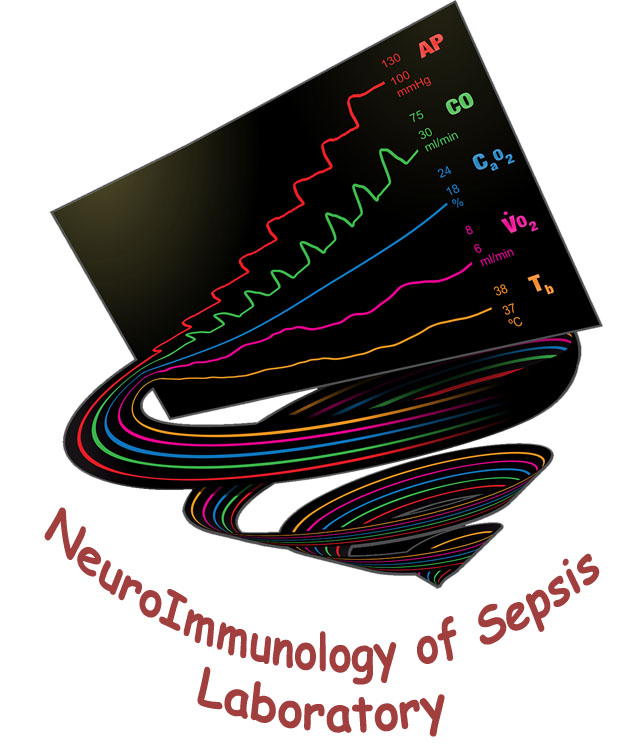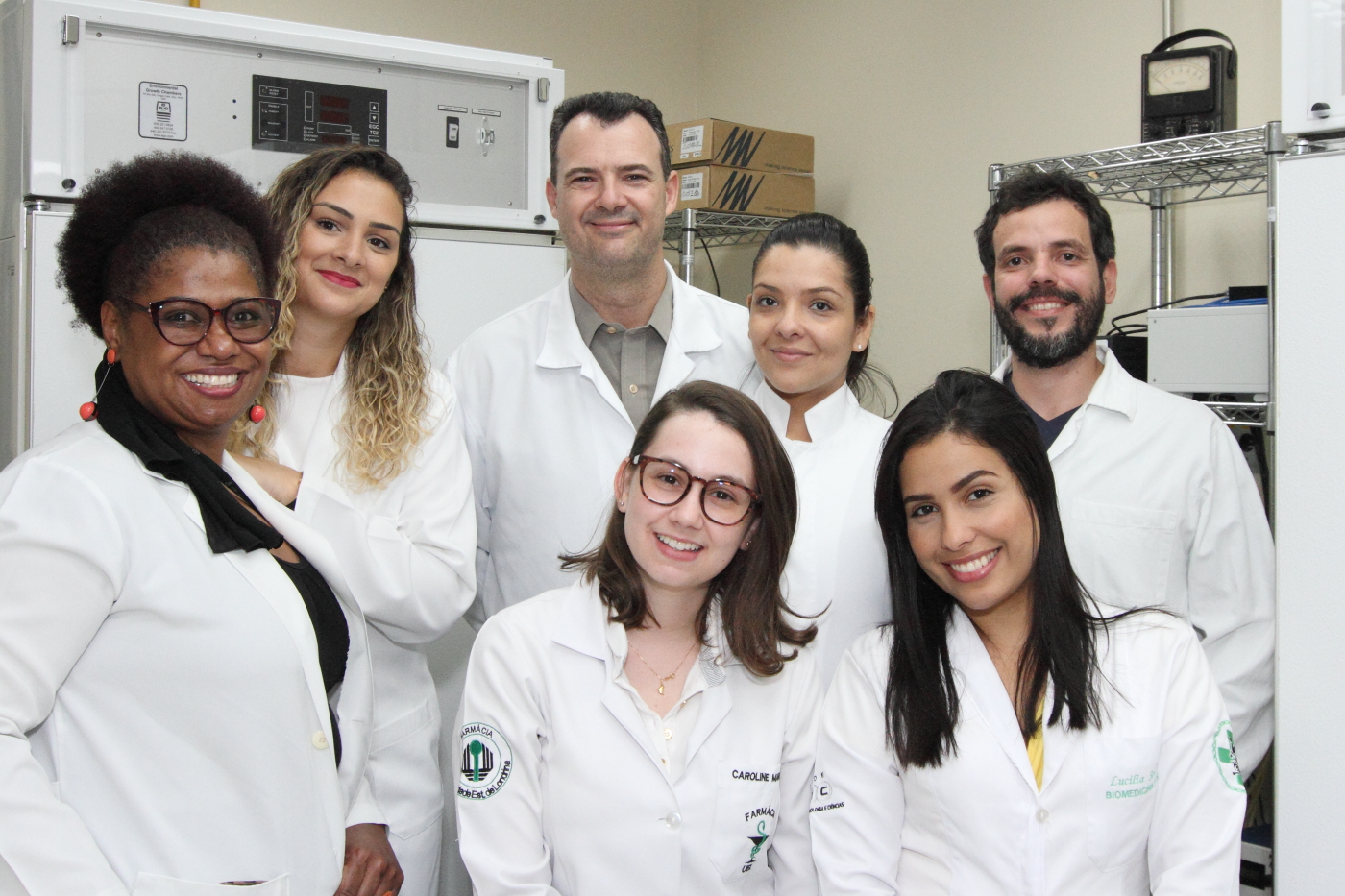

[:pb]Prof. Dr. Alexandre A. Steiner[:en]Alexandre A. Steiner[:]
“Estamos recrutando pós-docs e pós-graduandos altamente motivados para desenvolver projeto de pesquisa nas áreas de choque séptico, inflamação sistêmica e interações neuro-imunes. Quem tiver interesse, favor entrar em contato por e-mail (asteiner@usp.br), telefone (3091-7378) ou pessoalmente (sala 117, ICB IV).”
Equipe:
Membros atuais do laboratório
Monique T. Fonseca, pós-doutoranda
Eduardo H. Moretti, pós-doutorando
Caroline M. Matos, doutoranda
Gabriela C. S. Ferreira, mestranda
Isis F. L. Trzan, mestranda
Silvana Silva, técnica
Linha de Pesquisa:
Estudamos os mecanismos através dos quais o sistema imune interage com os sistemas nervoso e endócrino a fim de promover respostas fisiológicas (benéficas) ou patológicas (prejudiciais) durante infecções, inflamação sistêmica e sepse. Atualmente, nossos enfoques principais são:
1) Integração neural e humoral da função dos macrófagos residentes em diferentes órgãos, e sua relevância para a fisiopatologia da inflamação sistêmica/sepse.
2) Relação custo-benefício da febre e da hipotermia na sepse e em outras doenças infecciosas.
3) Hemodinâmica do choque séptico.
Publicações em Destaque (de um total de 80 artigos)
- Fonseca MT, Moretti EH, Marques LMM, Machado BF, Brito CF, Guedes JT, Komegae EN, Vieira TS, Festuccia WT, Lopes NP, Steiner AA. A leukotriene-dependent spleen-liver axis drives TNF production in systemic inflammation. Sci Signal 14: eabb0969, 2021. Electronic reprint service.
- Komegae EN, Fonseca MT, da Silveira Cruz-Machado S, Turato WM, Filgueiras LR, Markus RP, Steiner AA. Site-specific reprogramming of macrophage responsiveness to bacterial lipopolysaccharide in obesity. Front Immunol 10: 1496, 2019.
- Flatow EA, Komegae EN, Fonseca MT, Brito CF, Musteata FM, Antunes-Rodrigues J, Steiner AA. Elucidating the role of leptin in systemic inflammation: a study targeting physiological leptin levels in rats and their macrophages. Am J Physiol 313: R572-R582, 2017.
- Fonseca MT, Rodrigues AC, Cezar LC, Fujita A, Soriano FG, Steiner AA. Spontaneous hypothermia in human sepsis is a transient, self-limiting and non-terminal response. J Appl Physiol 120: 1394-1401, 2016.
- Corrigan JJ, Fonseca MT, Flatow EA, Lewis K, Steiner AA. Hypometabolism and hypothermia in the rat model of endotoxic shock: independence of circulatory hypoxia. J Physiol 592: 3901-3916, 2014.
- Liu E, Lewis K, Al-Saffar H, Krall CM, Singh A, Kulchitsky VA, Corrigan JJ, Simons CT, Petersen SR, Musteata FM, Bakshi CS, Romanovsky AA, Sellati TJ, Steiner AA. Naturally occurring hypothermia is more advantageous than fever in severe forms of lipopolysaccharide- and E. coli-induced systemic inflammation. Am J Physiol 302: R1372–R1383, 2012.
- Steiner AA, Turek VF, Almeida MC, Burmeister JJ, Oliveira DL, Roberts JL, Bannon AW, Norman MH, Louis JC, Treanor JJ, Gavva NR, Romanovsky AA. Nonthermal activation of transient receptor potential vanilloid-1 channels in abdominal viscera tonically inhibits autonomic cold-defense effectors. J Neurosci 27: 7459-7468, 2007.
- Steiner AA, Romanovsky AA. Leptin: at the crossroads of energy balance and systemic inflammation. Prog Lipid Res 46: 89-107, 2007.
- Steiner AA, Ivanov AI, Serrats J, Hosokawa H, Phayre AN, Robbins JR, Roberts JL, Kobayashi S, Matsumura K, Sawchenko PE, Romanovsky AA. Cellular and molecular bases of the initiation of fever. PLoS Biol 4: e284, 2006.
- Steiner AA, Chakravarty S, Rudaya AY, Herkenham M, Romanovsky AA. Bacterial lipopolysaccharide fever is initiated via Toll-like receptor 4 on hematopoietic cells. Blood 107: 4000-4002, 2006.
Copyright © 2026 Programa de Pós-Graduação em Imunologia | Produzido por SCS - Mídias Online


